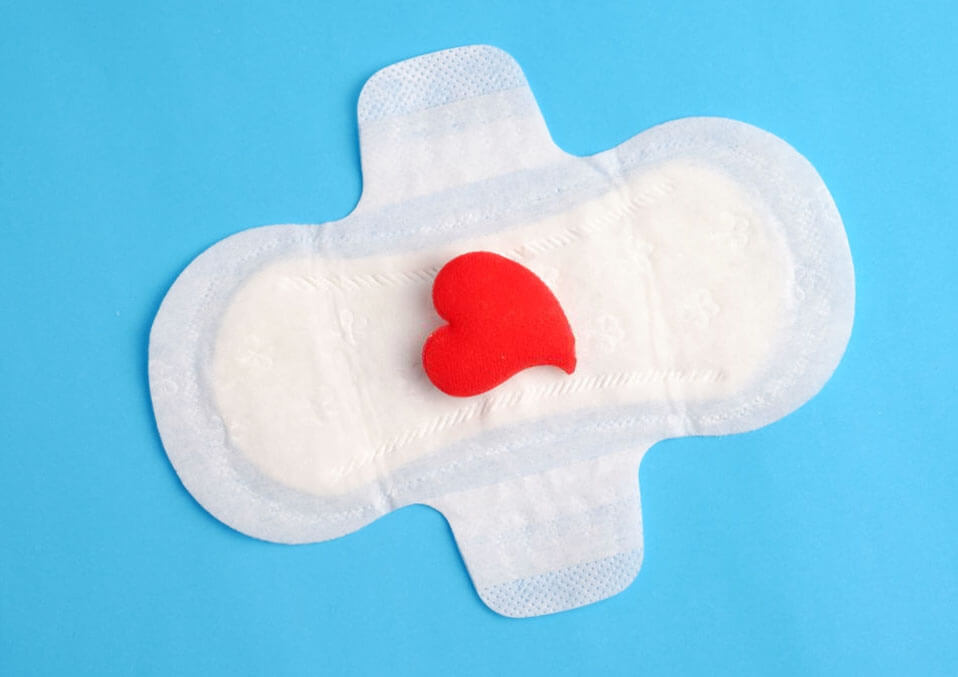Months after your delivery, your period may become irregular but may go back to normal after a while. There’s no way to expect how giving birth will influence a woman’s period, but mothers who breastfeed get their period back longer than usual.
In this blog, find out more when do you get a period after birth.
What to expect
Giving birth is a major shock for a woman’s body and now is the time to recuperate. There’s no such thing as a “normal” post-delivery period, but it’s normal for the first few times to be different from how it was pre-pregnancy.
Here are the main causes of why periods change after delivery:

- breastfeeding changing hormone levels
- uterus taking time to go back to its standard size
- hormone levels changing
Some women observe that they have the first period after baby heavy. Others notice that they have a different color of blood and there are more clots than normal, or they experience more intense cramps.
As stated by Diane Young, a Cleveland Clinic doctor, many women will observe their period goes back to normal over time, which means however it was pre-pregnancy.
When will the first menstrual period after birth?
Among females who don’t breastfeed or who lactate on an abnormal timetable, menstruation returns faster.
In a study conducted in 2011, six past research discovered that many women got first menstrual period after birth between 45 to 94 days. One research in the analysis uncovered that the normal first period occurred at 74 days after delivery.
How long does it take to get your period after having a baby? The main reason influencing the timing of the first post-delivery menstruation is ovulation. For those who want to monitor if they are ovulating or not, can try the OPK or ovulation predictor kit, which is sold online and at local pharmacies.
Also, calculating basal body temperature daily can help determine ovulation.
Irregular periods after birth

In the months after having a baby, it’s common to have irregular menstruation. Moms who are breastfeeding perhaps observe abnormal periods as the hormones that help to breastfeed cause the body to ovulation or ovulate rarely.
Even moms who aren’t lactating, menstruation may be abnormal as the body takes a while to recoup from pregnancy and delivery.
After some time, the period will go back to normal. But some women may have had abnormal menstruation before conceiving, including those women who have endometriosis or polycystic ovary syndrome (PCOS).
If a female is worried about unusual post-delivery periods, they should talk to a doctor to know the underlying reason.
First period after birth breastfeeding

Women who are nursing may not have postnatal menstruation for months due to breastfeeding often stops the ovulation and successive period.
Some females consider breastfeeding as their birth control technique. However, in a Cochrane Review previous study in 2015, discovered that 11.1 to 39.4% of women who were nursing had at least menstruation in 6 months of childbirth.
When to visit a doctor
After you have your baby, a doctor should recommend the warning indications of an issue. Normal hemorrhage patterns vary, and it depends on the childbirth method, a woman’s medical record, and other factors.
A woman must see a doctor as soon as:
- clots are bigger than a golf ball
- heavy blood flow that wets more than a pad every hour for more than 2 hours
- bleeding with a fever
- serious cramping
Also, a female must set a meeting with a doctor for very painful periods, uncommon bleeding, or for questions about abnormal menstruations.
Bottom line
The first menstrual period after birth may be more painful and heavier than those before delivering, or it may be easier and lighter.
When do you get a period after birth? Some females’ first menstrual period after birth after lochia and others may have to wait many months, particularly if they’re breastfeeding.
When changes in female menstruation are excruciating or if not troubling, it’s best to talk to a health doctor who can help alleviate the symptoms.
Read also:
- Is Eating Pate During Pregnancy Bad For The Health?
- Pregnancy Safety: Taking Bubble Baths While Pregnant, Is It a Yes or No
- Pregnancy Diet: 7 Amazing Facts About Eating Peanuts During Pregnancy


